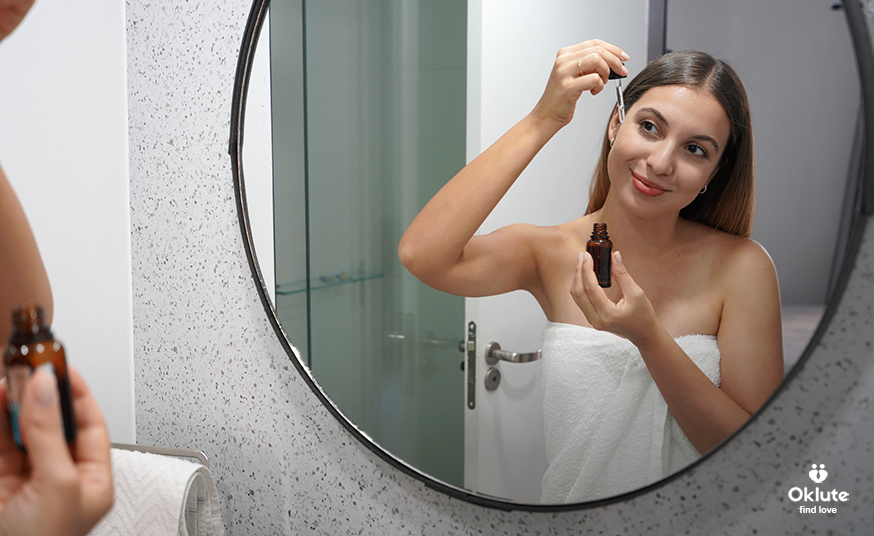Skincare ingredients are the essential components of products used for skin maintenance and improvement. These ingredients can be derived from natural sources like plants and minerals, or synthetically created in laboratories. Each ingredient possesses distinct properties and benefits for the skin, and understanding their functions helps consumers make informed decisions about product selection.
Skincare ingredients can address various skin types and concerns, including dry, oily, sensitive, or combination skin, and can enhance overall skin health and appearance. Skincare ingredients are incorporated into a diverse range of products, such as cleansers, moisturizers, serums, and masks. Some ingredients are formulated to cleanse and exfoliate, while others focus on hydration, soothing, or protection against environmental factors.
The abundance of available options underscores the importance of understanding each ingredient’s role in skincare and its potential benefits. By gaining knowledge about different types of skincare ingredients and their effects, consumers can make more informed choices and develop personalized skincare routines tailored to their specific needs.

Common Skincare Ingredients and Their Benefits
Hyaluronic Acid: The Ultimate Hydrator
Hyaluronic acid is a highly effective humectant that draws moisture into the skin, ensuring hydration and a fuller look. Much like Sydney escorts might seek top-notch skincare to maintain their glowing complexion, incorporating hyaluronic acid into your routine can help reduce the appearance of fine lines and wrinkles, improve skin elasticity, and create a smooth, supple look. Its ability to attract moisture ensures that your skin stays hydrated and youthful.
Retinoids and Antioxidants: The Anti-Aging Duo
Retinoids, like retinol and tretinoin, are vitamin A derivatives recognized for their ability to combat aging. They promote collagen production, accelerate cell renewal, and diminish the appearance of sun damage, fine lines, and wrinkles. Retinoids can also help unclog pores and reduce acne breakouts. Vitamin C, a potent antioxidant, is known for its ability to brighten the skin, even out skin tone, and protect against environmental damage. It can help reduce the appearance of dark spots and hyperpigmentation, as well as stimulate collagen production for firmer, more youthful-looking skin.
Niacinamide and Exfoliants: The Skin-Perfecting Pair
Niacinamide, also known as vitamin B3, is a versatile ingredient that can help improve the skin’s barrier function, reduce inflammation, and regulate oil production. It aids in lessening pore appearance, balancing skin tone, and refining the skin’s overall texture. Alpha Hydroxy Acids (AHAs), such as glycolic acid and lactic acid, are exfoliating ingredients that can help remove dead skin cells, improve skin texture, and promote cell turnover. They can help reduce the appearance of fine lines, wrinkles, and hyperpigmentation, as well as enhance the effectiveness of other skincare ingredients.
Beta Hydroxy Acid (BHA): The Acne-Fighting Hero
Beta Hydroxy Acid (BHA), also known as salicylic acid, is a powerful exfoliant that can penetrate deep into the pores to remove excess oil and unclog them. It is particularly effective for treating acne and preventing breakouts, as well as reducing inflammation and redness in the skin.
Understanding the Science Behind Skincare Ingredients
Skincare ingredients work on a cellular level to improve the health and appearance of the skin. For example, humectants like hyaluronic acid attract water molecules to the skin’s surface, helping to hydrate and plump it from within. Antioxidants, including vitamin C, neutralize harmful free radicals that cause oxidative stress and skin damage, protecting the skin from environmental aggressors like UV light and pollution.
In a similar vein, Glasgow escorts might opt for products that ensure their skin remains radiant and fresh. Exfoliants, including AHAs and BHAs, help by dissolving the bonds between dead skin cells, facilitating their removal and revealing a smoother, renewed surface. Retinoids, on the other hand, target specific receptors in the skin to stimulate collagen synthesis and accelerate cell turnover, which can reduce the appearance of fine lines, wrinkles, and sun damage. Meanwhile, niacinamide improves oil control and strengthens the skin’s protective barrier by enhancing ceramide levels and minimizing inflammation.
Each skincare ingredient has its own unique mechanism of action that contributes to its specific benefits for the skin. Understanding the science behind skincare ingredients can help us make more informed choices about the products we use and how we incorporate them into our skincare routines. By knowing how each ingredient works and what it can do for our skin, we can tailor our skincare regimen to address our specific concerns and achieve our desired results.
How to Choose the Right Skincare Ingredients for Your Skin Type
When choosing skincare ingredients for your skin type, it’s important to consider your specific concerns and goals. For example, if you have dry skin, you may want to look for ingredients like hyaluronic acid and ceramides that can help hydrate and strengthen the skin’s barrier. If you have oily or acne-prone skin, you may benefit from ingredients like salicylic acid and niacinamide that can help regulate oil production and unclog pores.
In vibrant cities like Hyderabad, where individuals often seek to enhance their confidence for both personal and social interactions, selecting the right skincare can be crucial. For those interested in exploring connections or relationships, including physical encounters, having clear and healthy skin can significantly boost self-esteem and comfort. Hyderabad call girls understand the importance of tailored skincare to maintain a flawless complexion that complements their lifestyle and social engagements.
In addition to considering your skin type and sensitivities, it’s also important to think about your skincare goals. Are you aiming to diminish the appearance of fine lines and wrinkles? Do you want to improve uneven skin tone or reduce hyperpigmentation?
By identifying your specific concerns and goals, you can choose skincare ingredients that are tailored to address them and help you achieve the results you desire.







